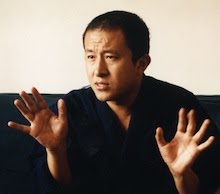It's a remarkable longitudinal study of 268 "promising young men" who entered Harvard College in the late 1930s, including John F. Kennedy and Ben Bradlee. As Brooks reports:
By any normal measure, they had it made. They tended to be bright, polished, affluent and ambitious. They had the benefit of the world’s most prestigious university. They had been selected even from among Harvard students as the most well adjusted.
And yet
Their lives played out in ways that would defy any imagination save Dostoyevsky’s. A third of the men would suffer at least one bout of mental illness. Alcoholism would be a running plague. The most mundane personalities often produced the most solid success. One man couldn’t admit to himself that he was gay until he was in his late 70s.
So what, if anything, can we learn about happiness? This in-depth, long-term examination explodes most of the simplistic truisms of the current so-called "happiness research" in positive psychology. Instead, it provides a series of remarkable stories of impermanence, change, unpredictability and the sheer impossibility of making predictions about how causes and conditions yield results over the course of a human life. Rinpoche has often said that only Mañjushri or the Buddha himself can understand the play of karma, and this article provides a welcome relief from the certainties and prescriptions of those who would believe in a predictable, controllable, mechanical world - a "clockwork universe". How much better to embrace the Four Noble Truths and the realisation that samsara is essenceless, and to do one's practice!
.jpg)
.jpg)
No comments:
Post a Comment